Census, emergency or technocrat setup: What can delay general elections?
5 min readWith two assemblies already dissolved and general elections coming ever closer, there has been talk of how there could be a delay in elections in Pakistan. Rana Sanaullah has even gone far enough to say that elections could be delayed six months to give ‘relief’ to the masses. But is a delay in elections beyond the constitutional duration really possible?
The next general election was to be held based on a fresh census which has been rescheduled once again. The dates for the census have been moved from February-March to March-April.
What does the constitution say?
The constitution is clear on how and when general elections are to be conducted. Article 224 of the constitution says general elections must be held within 60 days if the assembly completes its tenure and within 90 days if it is dissolved ahead of its time.
Former Secretary ECP Kunwar Dilshad says the commission has no reason or authority to delay elections in the country.
“If the assembly is dissolved, the commission is obligated to hold the election within 90 days,” Dilshad said.
Any delay, if it does happen, will come from elsewhere, the former secretary said.
“The delay in the census might be a sign, it was supposed to be completed on December 31,” Dilshad said, adding that the delay in the census can be an indication of how things are being planned.
Still, if the elections were to be announced today, the ECP’s path is clear. “The elections will simply be carried out as per the old census,” he said.
Can the delay in census matter?
Given the fact that local government elections were delayed in Islamabad and Sindh multiple times, the delimitations for the general elections are worth keeping an eye on.
A first-ever digital census for the country has been in the works since December 2021 and was originally planned to be completed no later than December 31, 2022.
However, the plan hit another delay when the Pakistan Bureau of Statistics announced on Tuesday that the census will begin in March and results will be published by the end of April.
Sensing a possible delay, the ECP had written to the Planning ministry in the middle of December asking for the process to be sped up. The commission said that fresh delimitations were ‘imperative’ for the conduct of transparent elections in the country and could only be made possible after a new census.
Fresh delimitations are required by law if a census has been completed and notified into the gazette. However, an expert working with an electoral watchdog said that the next elections are unlikely to be carried out as per the “yet-to-begin census.
“The delimitation process will take time and then there must be four-month gap between its completion and the general election,” the expert said. He also said that even if the digital census is sped up, it is unlikely to be notified because it took four years for the previous one to be made official.
An extended assembly?
The thing to note here is that the constitution mandates elections to be held within a fixed time period in relation to how the assembly’s tenure ends. So what if the assembly goes beyond its time.
The constitution makes a provision for an assembly to serve beyond its tenure. Article 232(6) says: “While a Proclamation of Emergency is in force, [Majlis-e-Shoora (Parliament)] may by law extend the term of the National Assembly for a period not exceeding one year and not extending in any case beyond a period of six months after the Proclamation has ceased to be in force.”
So, the assembly can hold on for a year and a half in the name of an ‘emergency’ situation. It is not clear what an extension will achieve that the present government cannot, especially as the assembly when the current finance minister insists he is putting up a good fight as any.
Apart from this, the possibility of an extended caretaker setup is being floated. But article 224’s provisions make it clear that there is no possibility of a caretaker setup going beyond 90 days.
A new group
On the other hand, a group of estranged politicians from different parties has come together, calling for a ‘rethinking’ of Pakistan’s solution to instability.
The group’s prominent members include Mustafa Nawaz Khokhar, who recently quit the PPP, Miftah Ismail, the former finance minister who is facing disciplinary action from PML-N, and Shahid Khaqan Abbasi, who has recently been associated with speculations of a new political party, among others.
During their first appearance as a group in Quetta, the speakers discussed everything from the enforced disappearances to electoral rigging. However, their discussion came around to the same point: they think that the current political system is ill-equipped to deal with the country’s problems. They also said that all stakeholders, politicians, judiciary and military need to recalibrate their ways to let the country move forward.
While this group of disillusioned members is currently limited to seminars across the country, they do seem to be hinting towards a more ‘creative’ solution to the country’s problems. The appearance of this group in an election year might be a sign of more creativity to come.
An example from another country
Things don’t always happen by the book though.
After a period of brief political uncertainty following the end of Khaleda Zia’s BNP government, an emergency was imposed in Bangladesh in January 2007.
Fakhruddin Ahmed, a former World Bank employee and central bank governor was chosen to head the caretaker government. The government suspended election schedules as well as basic freedoms.
In the meantime, they proceeded in high-profile corruption cases. Leaders of major political parties were imprisoned or exiled, and only allowed to return for elections that happened almost two years later in December 2008.
For the latest news, follow us on Twitter @Aaj_Urdu. We are also on Facebook, Instagram and YouTube.
















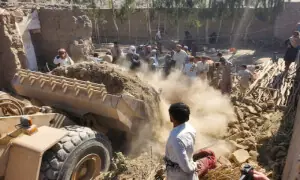
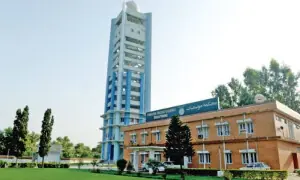

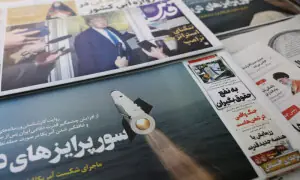


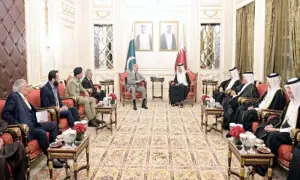
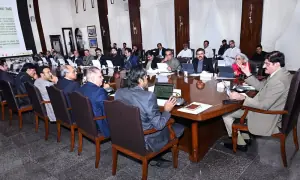

Comments are closed on this story.